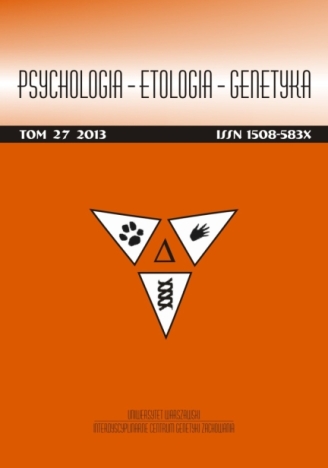Religijność a cechy osobowości u studentów warszaws kich uczelni wyższych
Religiosity and personality traits in students of Warsaw universities
Author(s): Anita Dominika Dąbrows ka, Władysław Jodko-NarkiewiczSubject(s): Psychology
Published by: Wydawnictwo Naukowe Scholar Sp. z o.o.
Summary/Abstract: The object of this research is the relationship of religiosity and Big Five personality traits. Religiosity has been defined as a three-way property (spiritual, intellectual and physical), and for the measurement of religiosity a questionnaire was constructed containing 4 bipolar scales: Dualism, Magical Religiosity, Intellectual Openness and Ritualism. The study group consisted of 260 Polish students of Warsaw universities. Correlation and group comparison were used for the analysis. Groups were distinguished on the basis of the results obtained on a single religiosity scale or the configuration of two scales (religious types). Theists showed the highest neuroticism. People with high magical religiosity, open- -minded, non-practicing religion and atheists were the most open to experience. The most agreeable were recipients adopting a dualistic ontology (theistic or magical belief), particularly if they were practicing religion and had a closed-mind. The highest conscientiousness had ritualists, agnostics (compared to the atheists), and the closed magical type (high magical religiosity and a closed-mind structure). Extraversion showed no relationship with any of the religiosity scale – only agnostics showed higher level of this trait at the tendency level in comparison with the atheists.
Journal: Psychologia-Etologia-Genetyka
- Issue Year: 2013
- Issue No: 27
- Page Range: 25-40
- Page Count: 16
- Language: Polish
- Content File-PDF

